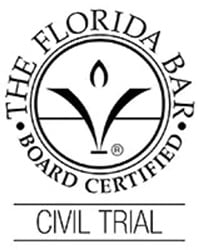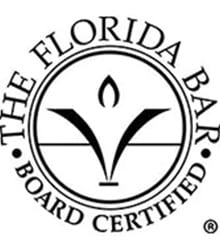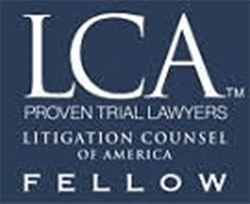When property conflicts arise, finding an experienced lawyer for real estate dispute resolution can make the difference between protecting your investment and suffering significant financial loss. Whether you’re facing boundary disagreements, contract breaches, title issues, or landlord-tenant conflicts, real estate disputes require specialized legal expertise to navigate successfully.
Real estate law is complex, and property disputes can quickly escalate into costly legal battles. The right attorney brings not only legal knowledge but also negotiation skills, courtroom experience, and a strategic approach tailored to your specific situation. In this comprehensive guide, we’ll explore everything you need to know about hiring legal representation for property conflicts, including costs, processes, and what to expect along the way.

Property Dispute Causing Stress? Let Us Help You
Property Dispute Causing Stress? Let Us Help You
Get your FREE & confidential case review todayUnderstanding Real Estate Disputes
Real estate disputes come in many forms, and each requires a nuanced approach. Common types include boundary and easement disputes, where neighbors disagree about property lines or access rights. Contract disputes arise when buyers, sellers, or developers fail to fulfill their obligations under purchase agreements or construction contracts.
Title defects present another significant challenge, occurring when ownership claims are unclear or when liens and encumbrances affect property transfers. Landlord-tenant conflicts, zoning and land use disagreements, and fraud or misrepresentation cases also fall under the real estate dispute umbrella.
When facing any of these issues, a lawyer for real estate dispute matters becomes essential. These attorneys understand local property laws, have experience with similar cases, and know how to build compelling arguments, whether you’re heading to mediation, arbitration, or court.
Can a Lawyer Help with Property Disputes?

First, they provide expert legal analysis of your situation. An attorney reviews all documentation—deeds, contracts, surveys, and correspondence—to assess the strength of your position and identify potential legal strategies. This initial evaluation helps you understand your rights and obligations clearly.
Second, real estate lawyers excel at negotiation and settlement. Many property disputes can be resolved without going to court, saving you time and money.
Your attorney acts as your advocate during negotiations, working to achieve favorable terms while protecting you from making agreements that could harm your interests.
Third, when litigation becomes necessary, having experienced courtroom representation is crucial. A lawyer for real estate dispute litigation understands procedural requirements, evidence rules, and persuasive advocacy techniques that give you the best chance of success.
Additionally, real estate attorneys help with document preparation, ensuring all legal filings are accurate and submitted on time. They also provide risk assessment, helping you understand potential outcomes and make informed decisions about how to proceed.
Perhaps most importantly, having legal representation levels the playing field. If the opposing party has an attorney, you need one too. Real estate law involves intricate statutes, regulations, and precedents that laypeople simply can’t navigate as effectively as trained professionals.
How Much Does a Property Dispute Lawyer Cost?
The cost of hiring a lawyer for real estate dispute resolution varies based on several factors, including the complexity of your case, your location, the attorney’s experience level, and the fee structure they use.
Hourly Rates: Most real estate attorneys charge by the hour, with rates typically ranging from $200 to $500 per hour. In major metropolitan areas or for highly specialized attorneys, rates can exceed $600 per hour. Simple matters might require only a few hours of work, while complex litigation can accumulate hundreds of billable hours.
Flat Fees: For straightforward services like document review, contract drafting, or routine real estate transactions, some attorneys offer flat-fee arrangements. These typically range from $500 to $3,000, depending on the service. However, flat fees are less common for dispute resolution since the time investment is harder to predict.
Retainer Agreements: Many attorneys require an upfront retainer—a deposit held in a trust account from which they bill their time. Initial retainers for real estate disputes often range from $2,500 to $10,000. As work progresses and the retainer depletes, you may need to replenish it.
Contingency Fees: In certain real estate cases—particularly those involving fraud, breach of contract with monetary damages, or property damage claims—attorneys might work on contingency. This means they receive a percentage (typically 25-40%) of any settlement or judgment you win. If you don’t recover money, you don’t pay attorney fees, though you may still be responsible for court costs and other expenses.
Additional Costs: Beyond attorney fees, expect expenses for court filing fees ($200-$500), expert witnesses ($2,000-$10,000+), surveying costs ($500-$2,000), title searches ($200-$400), and deposition transcripts ($300-$1,000 each).
For a straightforward property dispute resolved through negotiation, you might spend $3,000-$10,000 in legal fees. More complex cases requiring extensive litigation can easily cost $20,000-$100,000 or more.
To manage costs effectively, ask potential attorneys for a clear fee structure up front, request itemized billing, and discuss budget parameters. Some lawyers offer payment plans, and it’s worth asking whether certain tasks might be handled by paralegals at lower rates.

Property Dispute Weighing on You? Let Us Help You
Property Dispute Weighing on You? Let Us Help You
Get your FREE & confidential case review todayChoosing the Right Lawyer for Your Real Estate Dispute
Not all attorneys are created equal when it comes to property conflicts. Look for lawyers with specific experience in real estate litigation, not just general practice attorneys who occasionally handle property matters.
Experience and Track Record: Ask about the attorney’s experience with cases similar to yours. How many real estate disputes have they handled? What were the outcomes? An attorney with a proven track record in your specific type of dispute brings invaluable insight.
Local Knowledge: Real estate law varies significantly by state and even by municipality. Hiring a lawyer familiar with local courts, judges, and regulations provides a strategic advantage. They’ll understand local procedures and may have working relationships with other attorneys and court personnel.
Communication Style: Your attorney should explain legal concepts clearly, respond to inquiries promptly, and keep you informed about case developments. During initial consultations, assess whether their communication style matches your preferences.
Resources: Complex real estate disputes may require expert witnesses, investigators, or other resources. Ensure your attorney has access to these professionals and the infrastructure to handle sophisticated cases.
Reputation: Check online reviews, ask for references, and research the attorney’s standing with the state bar association. A strong reputation among peers and clients indicates professionalism and competence.
Most attorneys offer free or low-cost initial consultations. Use these meetings to interview multiple candidates, discuss your case, and get a feel for who you’d work with most effectively.
How Do I Sue My Real Estate Agent?
Sometimes, the party who has wronged you isn’t another property owner but rather your own real estate agent. Agents owe clients fiduciary duties, and when they breach these obligations, you may have grounds for a lawsuit.
Common Claims Against Real Estate Agents:
- Breach of fiduciary duty (failing to act in your best interest)
- Negligence or incompetence in handling the transaction
- Fraud or misrepresentation about property conditions or value
- Failure to disclose material facts
- Breach of contract
- Violation of fair housing laws
Steps to Sue Your Real Estate Agent:
- Document Everything: Gather all contracts, correspondence, property disclosures, inspection reports, and notes about conversations with your agent. Documentation forms the foundation of your case.
- Review Your Agreement: Examine the contract you signed with the agent. It may contain dispute resolution clauses requiring mediation or arbitration before litigation. Understanding these provisions is crucial.
- Consult a Lawyer for Real Estate Dispute Matters: An attorney can evaluate whether you have a viable claim and explain your legal options. They’ll assess damages you’ve suffered and the likelihood of recovery.
- Consider Filing a Complaint: Before or alongside a lawsuit, you might file a complaint with your state’s real estate licensing board. While this won’t recover damages, it can result in disciplinary action against the agent.
- Attempt Resolution: Your attorney may send a demand letter outlining your claims and requesting compensation. Many cases settle at this stage without formal litigation.
- File Your Lawsuit: If the settlement fails, your attorney will file a complaint in the appropriate court. The litigation process includes discovery (exchanging evidence), depositions, and potentially a trial.
- Prove Your Case: To succeed, you’ll need to prove the agent owed you a duty, breached that duty, and caused you measurable damages. This typically requires expert testimony from other real estate professionals.
Real estate agent lawsuits can be challenging because you must demonstrate not just that the agent made a mistake, but that the mistake caused you financial harm. An experienced attorney helps build this connection and quantifies your damages effectively.
How Much Does It Cost to Hire a Lawyer to Settle an Estate?
While estate settlement isn’t always a “dispute” in the traditional sense, property conflicts frequently arise during the probate process, making this question relevant for those dealing with inherited real estate.
Typical Estate Attorney Fees:
Estate attorneys commonly charge hourly rates ranging from $250 to $500, though rates vary by location and complexity. For straightforward estates, total costs might be $3,000-$7,000. Complex estates, especially those involving disputes, real property issues, or business interests, can cost $10,000-$50,000 or more.
Some attorneys charge a percentage of the estate value (typically 2-5%), particularly for serving as estate executor or administrator. However, this structure is less common than hourly billing.
Factors Affecting Cost:
- Estate size and complexity
- Number and type of assets (real estate often increases costs)
- Whether disputes arise among heirs
- Tax complications
- Whether the will is contested
- State-specific probate requirements
Property Disputes in Estate Settlements:
When multiple heirs have claims to real estate, disagreements about property division, valuation, or sale can arise. Perhaps one heir wants to keep the family home while others want to sell. Maybe there’s disagreement about property value or who should get which assets.
These situations require a lawyer for real estate dispute resolution in addition to probate expertise. The attorney might need to:
- Obtain professional property appraisals
- Negotiate buyout arrangements
- Facilitate mediation among heirs
- Handle partition actions (legal proceedings to divide property)
- Address title issues or liens
If you’re an executor dealing with contentious heirs and valuable real property, expect to pay on the higher end of the cost spectrum. However, professional legal guidance can prevent costly mistakes and protect the estate from unnecessary losses.

Property Dispute Causing Stress? Let Us Help You
Property Dispute Causing Stress? Let Us Help You
Get your FREE & confidential case review today
The Real Estate Dispute Resolution Process
Understanding what happens after you hire an attorney helps set realistic expectations. The dispute resolution process typically follows these stages:
Initial Assessment and Strategy: Your attorney reviews all documentation, researches applicable law, and develops a strategic plan. They’ll advise whether you have a strong case and what outcomes you might reasonably expect.
Demand and Negotiation: Before filing suit, your lawyer often sends a formal demand letter to the opposing party. This outlines your claims and requested relief, giving the other side an opportunity to settle. Many disputes are resolved at this stage.
Alternative Dispute Resolution: If negotiation doesn’t work, mediation or arbitration might be the next step. These processes are less formal and expensive than litigation, and they’re often required by contracts before parties can go to court.
Filing Suit: When other options fail, your attorney files a complaint in court. The defendant responds, and the discovery phase begins—both sides exchange evidence and take depositions.
Motion Practice: Attorneys might file motions asking the court to decide certain issues before trial. A motion for summary judgment, for example, argues that no factual disputes exist and the judge should rule based on the law alone.
Trial: If the case doesn’t settle, it proceeds to trial where both sides present evidence and arguments. The judge or jury then decides the outcome.
Appeal: The losing party may appeal the decision, extending the process further.
This process can take months to years, depending on case complexity and court schedules. Your lawyer for real estate dispute resolution guides you through each phase, managing expectations and making strategic decisions.
Protecting Your Property Rights
Real estate disputes are more than legal headaches—they affect your financial security and peace of mind. Whether you’re facing a boundary dispute with a neighbor, a breach of contract by a seller, or complications with inherited property, having skilled legal representation is essential.
The right lawyer for real estate dispute resolution brings expertise, strategy, and advocacy to your case. While legal fees are a significant consideration, the cost of going without proper representation—or losing your case—is typically far greater.
Don’t wait until a property conflict escalates beyond control. If you’re experiencing issues with real estate, consult with an experienced attorney who can assess your situation, explain your options, and protect your rights. The sooner you seek legal guidance, the more options you’ll have and the better your chances of a favorable resolution.
Real estate disputes can be resolved—but they require professional expertise, patience, and the right legal strategy. With the right attorney by your side, you can navigate these challenges confidently and protect what matters most: your property and your future.

Property Dispute Causing Stress? Let Us Help You
Property Dispute Causing Stress? Let Us Help You
Get your FREE & confidential case review todayRelated Article(s)












